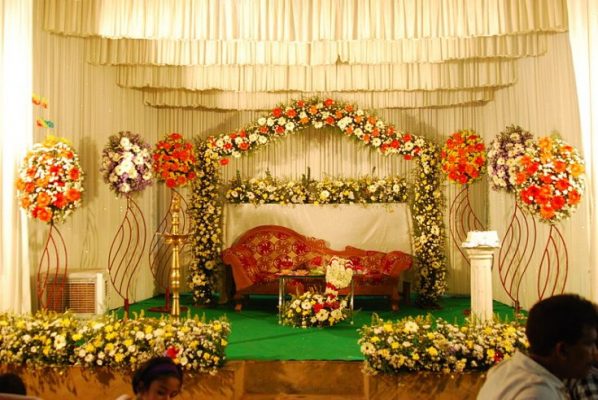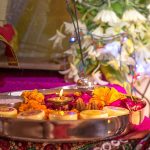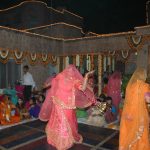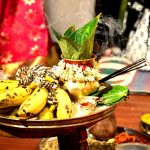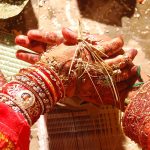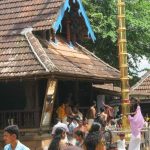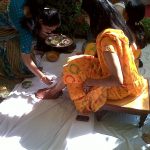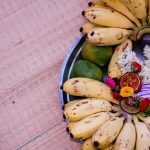Kerala Nair weddings have a distinct flavor all their own. The traditional Nair wedding rituals are beautiful and also hold much meaning.
Matching And Muhurtam
The families of the groom and the bride look for suitable matches by comparing horoscopes of the prospective couple. The process of finding a match is based on the family background and also the horoscope matching of the prospective couple. The families consult an astrologer to determine if the match is suitable. If the horoscopes match, the families meet and decide on the match. They fix a date and Muhurat (auspicious time) for the engagement and the wedding.
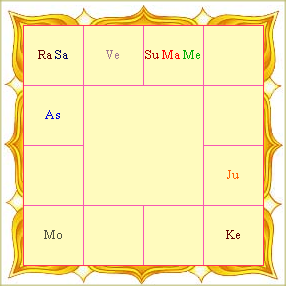
Nischayam
The family and close friends of the bride and groom attend the engagement ceremony. The engagement or Nischayam is also called the Mothiram Maatal. The groom and the bride exchange rings to symbolize engagement with each other. The families exchange gifts and the wedding preparations begin.
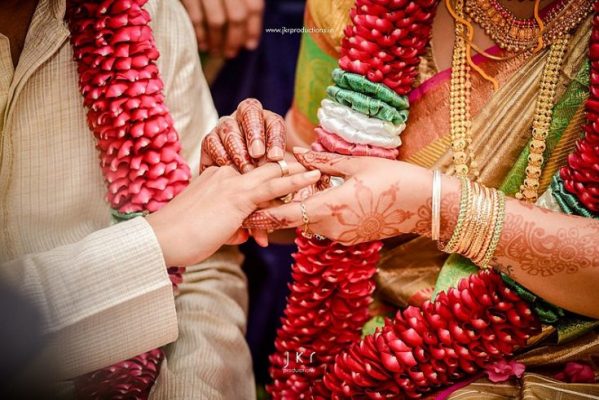
Aashirwadam
The Aashirwadam is literally the ‘blessing’ ceremony. Before the wedding, all the close family members and friends of the bride and the groom meet. The bride and the groom sit facing east in their respective homes for this ceremony. The near and dear present bless the bride and the groom who dress in grand traditional clothing and jewelry for the occasion.
Mehendi Ceremony
The bride’s aunts decorate the bride’s hands and feet with beautiful Henna designs. In modern times, the aunts initiate the process and a professional Henna artist completes the designs. It is an occasion of joy, laughter, and celebration.
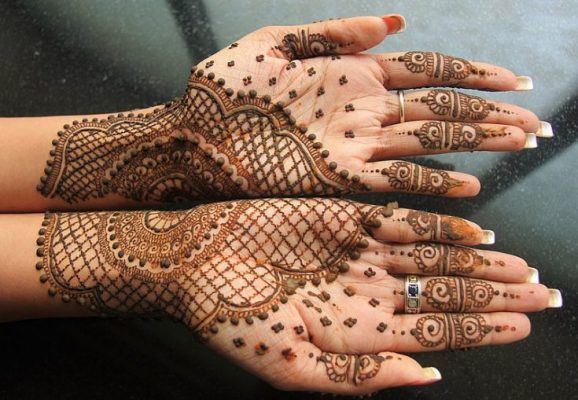
Wedding Day – Kudivep
The Kerala Nair wedding rituals are simple as well as elegant. The traditional Nair wedding is called the Kudivep. Most traditional families host the wedding at the family home rather than a wedding hall or temple. But, nowadays for the sake of convenience, the families choose the wedding venue to easily accommodate the number of guests invited. Tradition dictates the exact way in which the wedding Mandap is to be erected and decorated. These rules are strictly adhered to. The Kerala Nair wedding rituals are simple and meaningful.
Haldi
Some families have a Haldi ceremony on the morning of the wedding. The women of each household make a paste of Haldi / turmeric. The women ceremonially apply the paste to the faces of the bride and the groom respectively.
Dakshina Kodukkal
The bride and the groom respectively touch the feet of their parents and the elders in the home before they set out for the marriage venue. The Dakshina is the blessing of the elders. The bride wears a traditional Kerala Kasavu saree. Some brides choose to wear a silk saree. The bride wears a lot of gold jewelry. The groom wears a silk kurta and dhoti and gold ornaments.
Thaalikettu – The Traditional Nair Wedding
The bride’s family welcomes the groom and the bride’s brother washes the groom’s feet. He leads the groom to the Mandap. Young girls with DIyas accompanied by the bride’s aunts enter the room. In some families, the young girls with lamps accompany the groom to the Mandap. The bride is then led to the Mandap. Musicians play the Nadaswaram as the bride approaches the Mandap. The bride sits next to the groom and the priest begins the traditional Kerala Nair wedding rituals. The couple walks around the Homa fire. The bride’s father gives the groom a Thali which the groom ties around the bride’s neck.
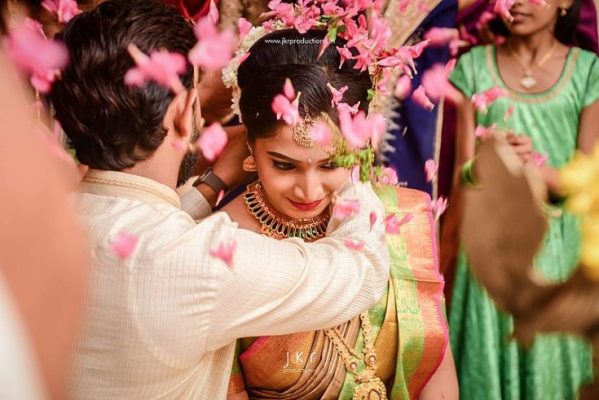
Pudamuri
The groom gifts his new wife a beautiful silk saree on a platter. This symbolizes that he will provide for her and take care of her for the rest of their lives. The couple then exchanges garlands as acceptance of each other.
Kanyadaan
The father of the bride places betel leaves on the groom’s hands. He then places the bride’s hands in the groom’s hands symbolizing that he has handed his daughter to her husband. This is usually an emotional moment. The new couple then touches the feet of the elders present together. The elders who are present bless the new couple.
Sadhya
A Kerala feast of Sadhya is served with 25 different vegetarian dishes on a banana leaf. A traditional Nair wedding Sadhya is an elaborate meal to be relished simply because of the variety of delicious traditional dishes such as rice, three types of pickles, Avial, Thoran, Olan, Kalan, Pacchari, Payasam, and Papads. The desert is usually Paladaa Prathaman or Chaka Prathaman.
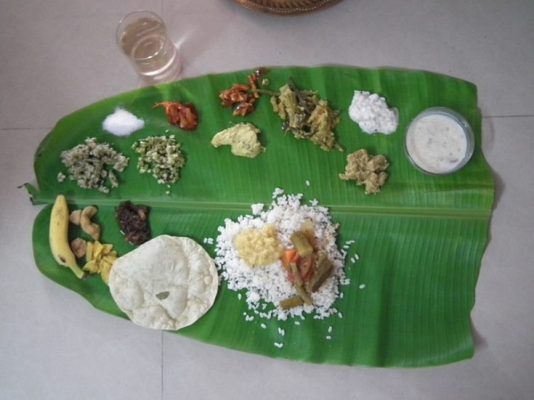
Griha Pravesh
The groom’s mother welcomes the new bride into her marital home with an Arthi. She then hands a lamp to the bride who puts her right leg forward and walks into the home. This signifies that she will bring happiness as well as auspiciousness into the home.
Reception
Some families may decide to hold a wedding reception and also serve a grand feast to the extended family and friends who could not attend the more intimate wedding ceremony. The guests give the couple gifts and blessings.
